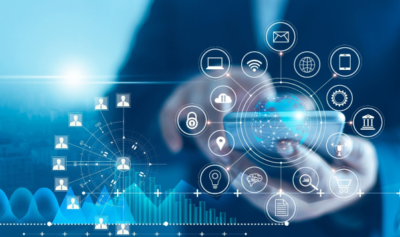Transforming Education with EdTech Solutions

The education sector has been significantly transformed by the integration of technology, leading to the rise of EdTech, or educational technology. EdTech solutions encompass a wide range of tools and platforms designed to enhance teaching, learning, and administrative processes. From personalized learning experiences to efficient administrative management, EdTech is revolutionizing how education is delivered and experienced.
What are EdTech Solutions?
EdTech solutions refer to the use of technology to facilitate and improve education. These solutions include software, hardware, and digital content that support educational activities. They cater to various stakeholders in the education ecosystem, including students, teachers, administrators, and parents.
Key Components of EdTech Solutions
- Learning Management Systems (LMS)
- LMS platforms provide a centralized system for managing educational content, tracking student progress, and facilitating communication between students and teachers. Also, lms development services can offer features such as course creation, assignment management, and discussion forums, making them essential for both traditional and online learning environments.
- Adaptive Learning Technologies
- Adaptive learning technologies use artificial intelligence to customize educational content based on individual student needs. By analyzing student performance data, these systems provide personalized learning paths, ensuring that each student receives instruction tailored to their unique learning style and pace.
- Virtual Classrooms and Online Collaboration Tools
- Virtual classrooms and collaboration tools enable remote learning and real-time interaction between students and teachers. These platforms offer video conferencing, screen sharing, and collaborative whiteboards, creating an interactive and engaging learning environment, regardless of geographical barriers.
- Digital Content and eBooks
- Digital content, including eBooks, interactive simulations, and multimedia resources, enhances traditional learning materials. These resources provide dynamic and engaging content that can be accessed anytime, anywhere, supporting diverse learning needs and preferences.
- Assessment and Analytics Tools
- Assessment tools allow for the creation and administration of quizzes, tests, and assignments. Analytics tools, on the other hand, help educators analyze student performance data to identify trends, assess learning outcomes, and make informed decisions about instructional strategies.
- IMS Development Services
- IMS (Information Management System) development services are crucial for creating and maintaining robust educational platforms. These services ensure that educational institutions have the infrastructure to manage student information, course data, and administrative functions efficiently. IMS development services help integrate various EdTech solutions into a cohesive system, enhancing overall educational management.
Benefits of EdTech Solutions
Personalized Learning
EdTech solutions enable personalized learning experiences by adapting content to meet the needs of individual students. This approach helps address diverse learning styles and paces, improving student engagement and outcomes.
Enhanced Accessibility
Technology removes geographical and physical barriers to education, making learning more accessible to students worldwide. Online courses, virtual classrooms, and digital resources provide opportunities for learners who may not have access to traditional educational institutions.
Improved Engagement
Interactive and multimedia-rich content captures students’ attention and makes learning more engaging. Gamified learning, simulations, and virtual reality experiences immerse students in the learning process, fostering a deeper understanding of the material.
Efficient Administration
EdTech solutions streamline administrative tasks such as enrollment, scheduling, grading, and communication. IMS development services play a crucial role in creating systems that manage these functions efficiently, reducing the administrative burden on educators and allowing them to focus more on teaching.
Data-Driven Insights
Analytics tools provide valuable insights into student performance and behavior. Educators can use this data to identify areas where students are struggling, adjust instructional strategies, and provide targeted support, leading to improved learning outcomes.
Emerging Trends in EdTech
Artificial Intelligence and Machine Learning
AI and machine learning are increasingly being integrated into EdTech solutions to provide more intelligent and responsive educational experiences. These technologies enable advanced adaptive learning, predictive analytics, and automated administrative processes.
Gamification
Gamification involves incorporating game elements into educational activities to increase engagement and motivation. By using points, badges, leaderboards, and challenges, educators can make learning more enjoyable and interactive.
Virtual and Augmented Reality
Virtual reality (VR) and augmented reality (AR) are transforming the way students learn by providing immersive and experiential learning opportunities. These technologies allow students to explore complex concepts and environments in a hands-on manner, enhancing their understanding and retention.
Blockchain for Education
Blockchain technology offers potential benefits for education, particularly in the areas of credentialing and data security. By creating tamper-proof records of academic achievements, blockchain can enhance the credibility and portability of educational credentials.
Microlearning
Microlearning involves delivering educational content in small, bite-sized chunks that are easy to consume and retain. This approach caters to the modern learner’s preference for short, focused learning sessions and is particularly effective for skills-based and professional development training.
Challenges in Implementing EdTech Solutions
Digital Divide
The digital divide remains a significant challenge, with disparities in access to technology and the internet impacting the effectiveness of EdTech solutions. Ensuring equitable access to devices and connectivity is crucial for the success of technology-enhanced education.
Data Privacy and Security
Protecting student data is paramount in the digital age. EdTech solutions must comply with data privacy regulations and implement robust security measures to safeguard sensitive information.
Resistance to Change
Educators and institutions may be resistant to adopting new technologies due to a lack of familiarity or fear of disruption. Providing adequate training and support is essential to overcome this resistance and ensure successful implementation.
Integration and Interoperability
Integrating various EdTech solutions and ensuring they work seamlessly together can be challenging. IMS development services are vital in creating cohesive systems that integrate different tools and platforms, enhancing the overall functionality and efficiency of educational technology.
Wrapping Up
EdTech solutions are reshaping the educational landscape by providing innovative tools and platforms that enhance teaching, learning, and administration. From personalized learning experiences to efficient management systems, EdTech is driving the future of education. As technology continues to evolve, staying abreast of emerging trends and addressing the associated challenges will be crucial for educators and institutions. By leveraging advanced technologies and prioritizing accessibility and data security, EdTech can create more effective, inclusive, and engaging educational experiences for all learners.
Alexia is the author at Research Snipers covering all technology news including Google, Apple, Android, Xiaomi, Huawei, Samsung News, and More.










